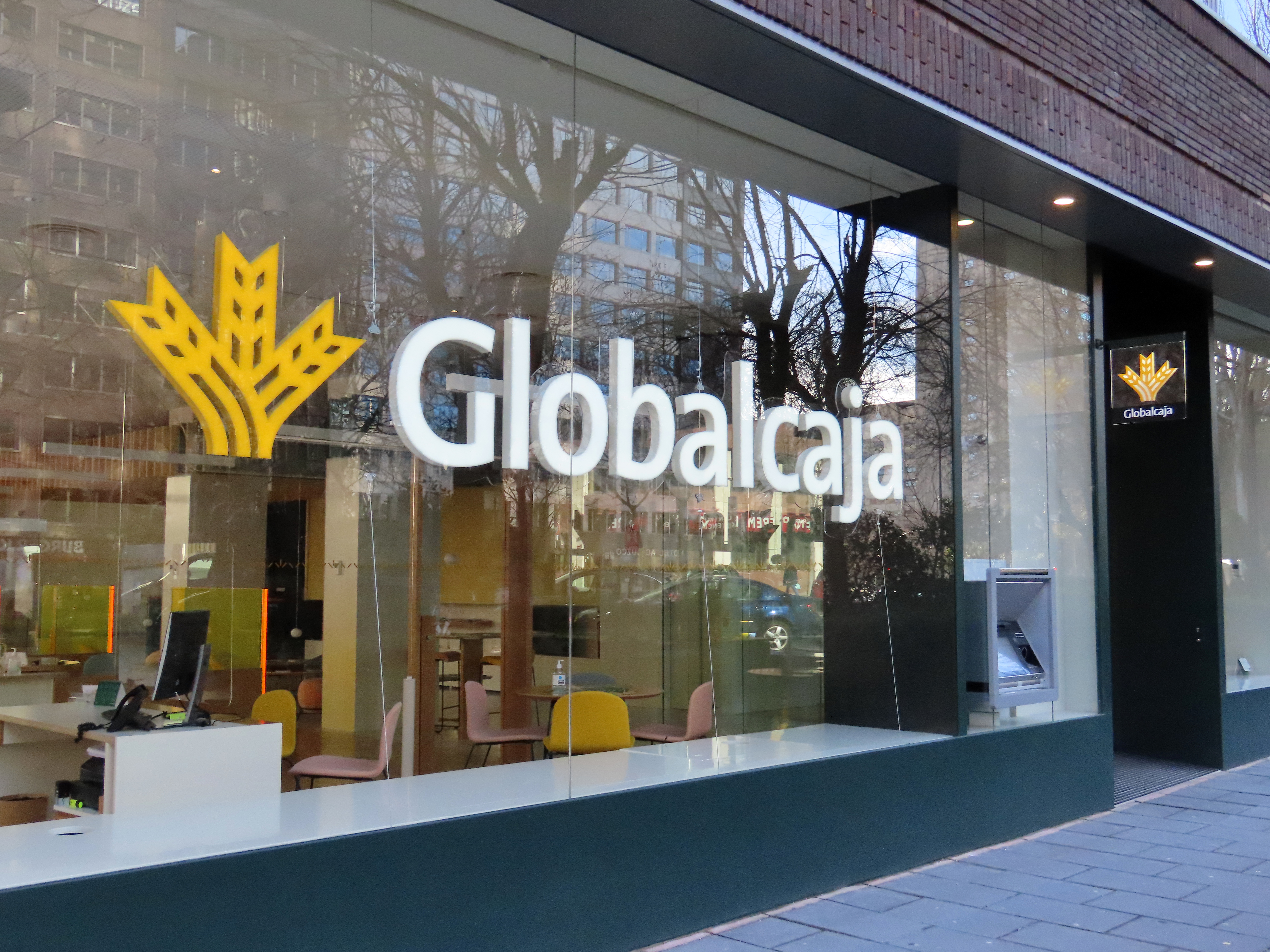Play ransomware gang says it's behind attack on major Spanish bank
The Globalcaja incident marks the latest in a string of highly disruptive attacks waged by the Play ransomware group


Globalcaja, one of Spain’s largest banking institutions, has fallen victim to a ransomware attack said to have been orchestrated by the Play ransomware group.
The ransomware gang listed the bank as one of its latest victims on its leak site and claims to have gained access to both private and personal data, as well as client and employee documents.
Passport information and confidential contracts were also noted among the list of data seized during the incident.
Globacaja confirmed the attack in a statement on June 2nd, but insisted that it had not affected customer or client accounts.
The bank added that it "activated security” protocols designed to mitigate the impact of a potential breach.
“From the very beginning, at Globalcaja we activated the security protocols created for this purpose, which led us to disable some office posts and temporarily limit the performance of some operations,” the company said.
“We continue to work hard to finish normalizing the situation and are analyzing what happened, prioritizing security at all times.”
Get the ITPro daily newsletter
Sign up today and you will receive a free copy of our Future Focus 2025 report - the leading guidance on AI, cybersecurity and other IT challenges as per 700+ senior executives
COMUNICADO OFICIALEn el día de ayer, registramos unciberincidente, consistente en un ataque informático a algunos equipos locales a través de un virus tipo #ransomware.El mismo no ha afectado al transaccional de la entidad (ni las cuentas ni los acuerdos de los clientes se… pic.twitter.com/LeQdNN8r1iJune 2, 2023
Globalcaja serves more than half a million customers across Spain and employs over 1,000 staff. At present, it is unclear whether Globalcaja has engaged with the group or paid ransom demands.
Martin Mackay, CRO at Versa Networks said the attack aligns with a long-standing trend of ransomware groups targeting financial institutions due to the volume of critical data they hold and process.
RELATED RESOURCE

How applications are attacked
Key attacks that organizational security postures must account for in 2023
“Whilst it’s unknown if Globalcaja has paid Play’s ransom demands, the most important thing in this situation is to not give in to any demands. Paying the ransom is no guarantee that stolen data will be returned or not leaked, and it only fuels further cybercriminal activity,” he said.
“The finance sector is an attractive target for ransomware attacks because of the sheer volume of data and critical services managed by financial institutions. Targeting client information and threatening to leak data can not only result in financial damage, but also jeopardize the values and the reputation of the bank.”
Recurring attacks by Play ransomware
This marks the latest in a string of high-profile attacks conducted by the Play ransomware group, which rose to prominence in mid-2022.
The group has previously claimed responsibility for a highly disruptive attack against Rackspace earlier this year that led to the exposure of sensitive data including passport information, confidential contracts, and student IDs.
Play was also the group behind ransomware attacks on the German hotel chain, H-Hotels, and the State of New York (SUNY) Polytechnic college last year.
The group has traditionally targeted organizations across Latin America, according to analysis from Avertium. However, it also has a track record of deploying attacks on companies operating in India, Hungary, the Netherlands, and Spain.

Ross Kelly is ITPro's News & Analysis Editor, responsible for leading the brand's news output and in-depth reporting on the latest stories from across the business technology landscape. Ross was previously a Staff Writer, during which time he developed a keen interest in cyber security, business leadership, and emerging technologies.
He graduated from Edinburgh Napier University in 2016 with a BA (Hons) in Journalism, and joined ITPro in 2022 after four years working in technology conference research.
For news pitches, you can contact Ross at ross.kelly@futurenet.com, or on Twitter and LinkedIn.
-
 Westcon-Comstor and Vectra AI launch brace of new channel initiatives
Westcon-Comstor and Vectra AI launch brace of new channel initiativesNews Westcon-Comstor and Vectra AI have announced the launch of two new channel growth initiatives focused on the managed security service provider (MSSP) space and AWS Marketplace.
By Daniel Todd Published
-
 Third time lucky? Microsoft finally begins roll-out of controversial Recall feature
Third time lucky? Microsoft finally begins roll-out of controversial Recall featureNews The Windows Recall feature has been plagued by setbacks and backlash from security professionals
By Emma Woollacott Published
-
 ‘Phishing kits are a force multiplier': Cheap cyber crime kits can be bought on the dark web for less than $25 – and experts warn it’s lowering the barrier of entry for amateur hackers
‘Phishing kits are a force multiplier': Cheap cyber crime kits can be bought on the dark web for less than $25 – and experts warn it’s lowering the barrier of entry for amateur hackersNews Research from NordVPN shows phishing kits are now widely available on the dark web and via messaging apps like Telegram, and are often selling for less than $25.
By Emma Woollacott Published
-
 Healthcare systems are rife with exploits — and ransomware gangs have noticed
Healthcare systems are rife with exploits — and ransomware gangs have noticedNews Nearly nine-in-ten healthcare organizations have medical devices that are vulnerable to exploits, and ransomware groups are taking notice.
By Nicole Kobie Published
-
 Alleged LockBit developer extradited to the US
Alleged LockBit developer extradited to the USNews A Russian-Israeli man has been extradited to the US amid accusations of being a key LockBit ransomware developer.
By Emma Woollacott Published
-
 February was the worst month on record for ransomware attacks – and one threat group had a field day
February was the worst month on record for ransomware attacks – and one threat group had a field dayNews February 2025 was the worst month on record for the number of ransomware attacks, according to new research from Bitdefender.
By Emma Woollacott Published
-
 CISA issues warning over Medusa ransomware after 300 victims from critical sectors impacted
CISA issues warning over Medusa ransomware after 300 victims from critical sectors impactedNews The Medusa ransomware as a Service operation compromised twice as many organizations at the start of 2025 compared to 2024
By Solomon Klappholz Published
-
 Warning issued over prolific 'Ghost' ransomware group
Warning issued over prolific 'Ghost' ransomware groupNews The Ghost ransomware group is known to act fast and exploit vulnerabilities in public-facing appliances
By Solomon Klappholz Published
-
 The Zservers takedown is another big win for law enforcement
The Zservers takedown is another big win for law enforcementNews LockBit has been dealt another blow by law enforcement after Dutch police took 127 of its servers offline
By Solomon Klappholz Published
-
 There’s a new ransomware player on the scene: the ‘BlackLock’ group has become one of the most prolific operators in the cyber crime industry – and researchers warn it’s only going to get worse for potential victims
There’s a new ransomware player on the scene: the ‘BlackLock’ group has become one of the most prolific operators in the cyber crime industry – and researchers warn it’s only going to get worse for potential victimsNews Security experts have warned the BlackLock group could become the most active ransomware operator in 2025
By Solomon Klappholz Published